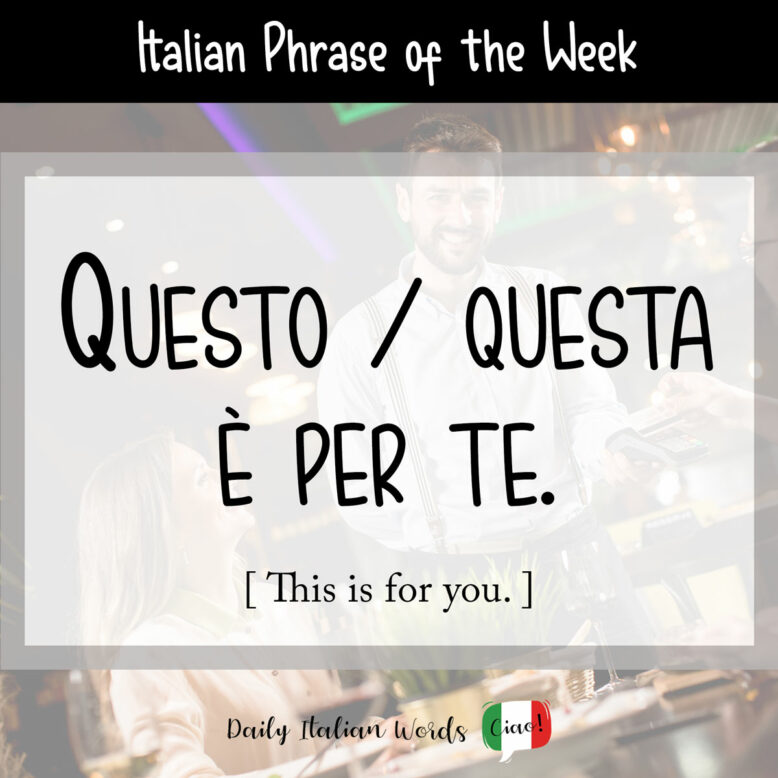When giving someone a present on a special occasion, such as their birthday or at Christmas, we often accompany the act of giving with a phrase such as «This is for you».
The way you would say this phrase in Italian ultimately depends on the grammatical gender of the gift in question. If it is masculine, you’d use the pronoun questo (this) + è per te (is for you) whereas questa (also this) would be used for a feminine object.
Questo / Questa è per te.
This is for you.

Examples of gifts with the masculine gender
gioco (game)
buono regalo (gift certificate)
sapone (soap)
vino (wine)
Examples of gifts with the feminine gender
collana (necklace)
tazza (mug, teacup)
sciarpa (scarf)
candela (candle)
- Questo (gioco) è per te. = This (game) is for you.
- Questa (collana) è per te. = This (necklace) is for you.
Of course, if you are generically referencing the gift rather than the specific item you bought, it is best to use questo. This is because regalo, the word for gift in Italian, is masculine.

The respective plurals of questo and questa are questi (these) and queste (these).
Questi (giochi) sono per te.
These (games) are for you.
Queste (collane) sono per te.
These (necklaces) are for you.
Up until now, we’ve been using the object pronoun te (informal you) but when addressing someone in a formal setting, such as your boss, it is expected that you’d use the object pronoun Lei (formal you).
Questo / Questa è per Lei.
This is for you.
When addressing two or more people, the object pronoun becomes voi (plural you).
Questo / Questa è per voi.
This is for (all of) you.

Heather Broster is a graduate with honours in linguistics from the University of Western Ontario. She is an aspiring polyglot, proficient in English and Italian, as well as Japanese, Welsh, and French to varying degrees of fluency. Originally from Toronto, Heather has resided in various countries, notably Italy for a period of six years. Her primary focus lies in the fields of language acquisition, education, and bilingual instruction.


